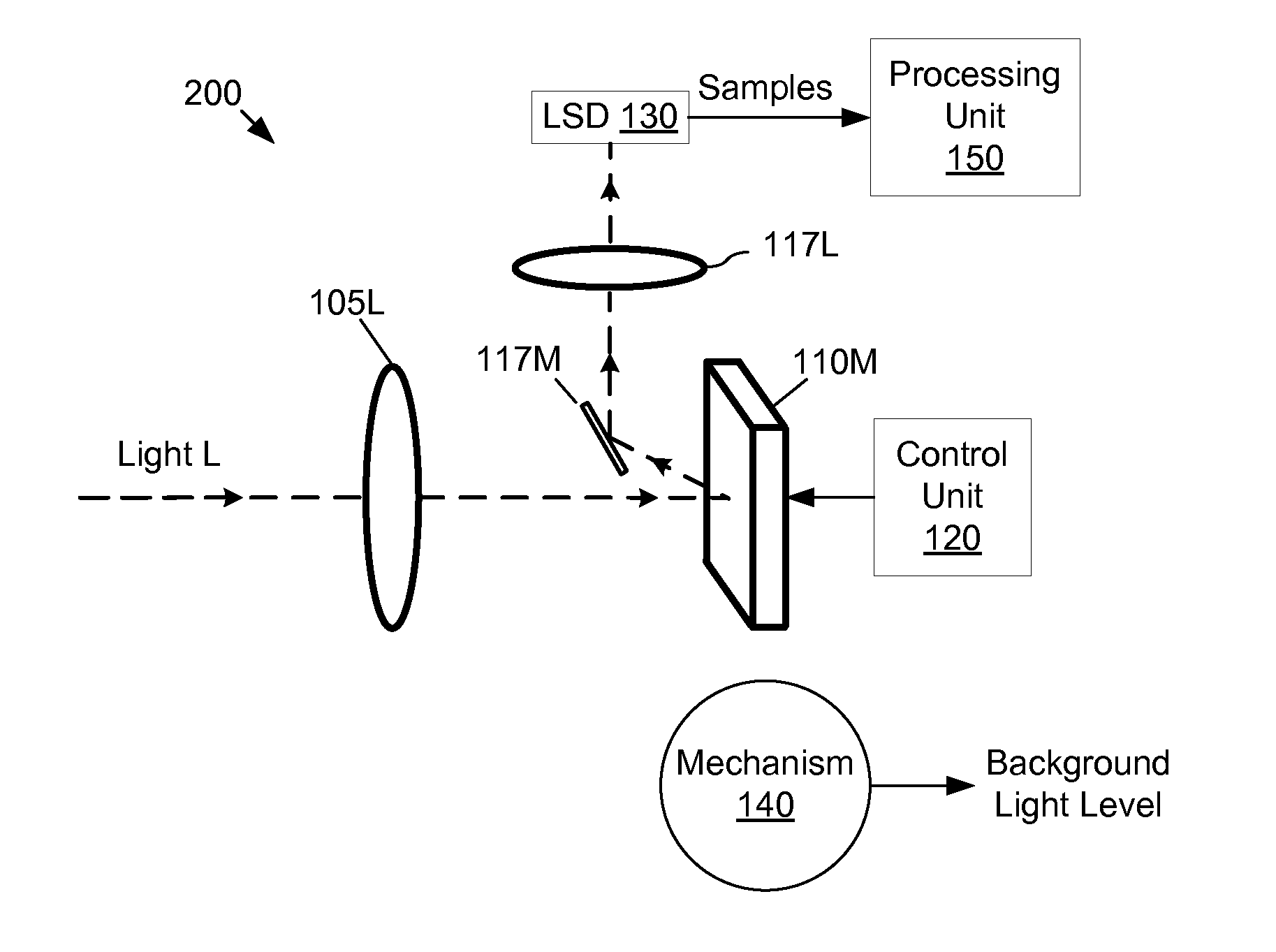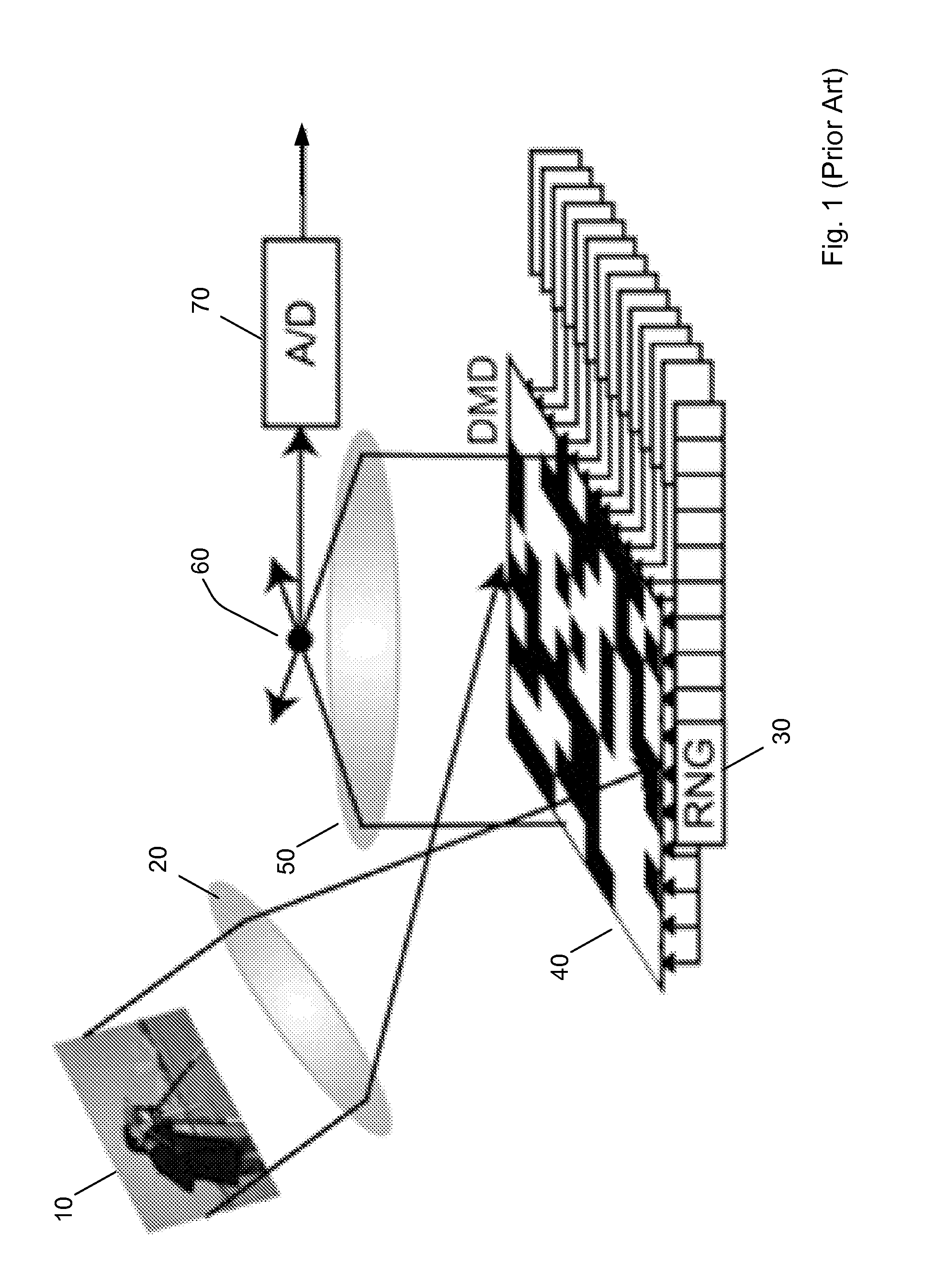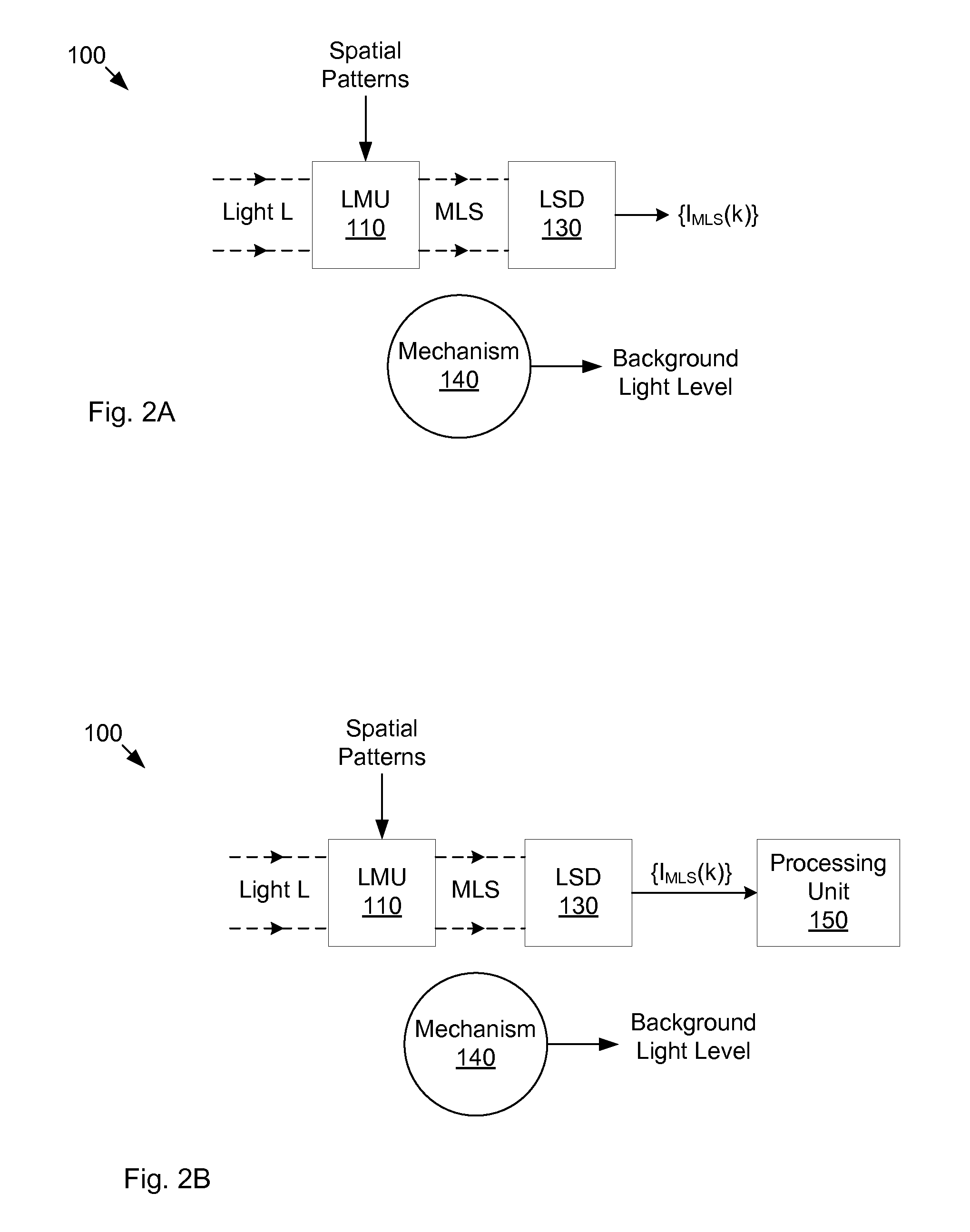Determining Light Level Variation in Compressive Imaging by Injecting Calibration Patterns into Pattern Sequence
a technology of compressive imaging and calibration pattern, applied in the field of compressive sensing, can solve the problems of large number of samples generated, overwhelming data volume, and reconstruction may not be satisfactory,
- Summary
- Abstract
- Description
- Claims
- Application Information
AI Technical Summary
Benefits of technology
Problems solved by technology
Method used
Image
Examples
Embodiment Construction
[0087]The following patent applications provide teachings regarding compressive sensing and compressive imaging:
[0088]U.S. Provisional Application No. 60 / 673,364 entitled “Method and Apparatus for Optical Image Compression,” filed on Apr. 21, 2005;
[0089]U.S. Provisional Application No. 60 / 679,237 entitled “Method and Apparatus for Reconstructing Data from Multiple Sources,” filed on May 10, 2005;
[0090]U.S. Provisional Application No. 60 / 729,983 entitled “Random Filters for Compressive Sampling and Reconstruction,” filed on Oct. 25, 2005;
[0091]U.S. Provisional Application No. 60 / 732,374 entitled “Method and Apparatus for Compressive Sensing for Analog-to-Information Conversion,” filed on Nov. 1, 2005;
[0092]U.S. Provisional Application No. 60 / 735,616 entitled “Method and Apparatus for Distributed Compressed Sensing,” filed on Nov. 10, 2005;
[0093]U.S. Provisional Application No. 60 / 759,394 entitled “Sudocodes: Efficient Compressive Sampling Algorithms for Sparse Signals,” filed on Jan....
PUM
 Login to View More
Login to View More Abstract
Description
Claims
Application Information
 Login to View More
Login to View More - R&D
- Intellectual Property
- Life Sciences
- Materials
- Tech Scout
- Unparalleled Data Quality
- Higher Quality Content
- 60% Fewer Hallucinations
Browse by: Latest US Patents, China's latest patents, Technical Efficacy Thesaurus, Application Domain, Technology Topic, Popular Technical Reports.
© 2025 PatSnap. All rights reserved.Legal|Privacy policy|Modern Slavery Act Transparency Statement|Sitemap|About US| Contact US: help@patsnap.com



